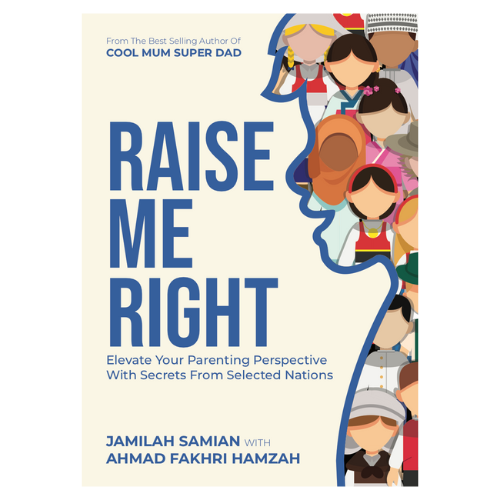 We live in a time where stories are told in seconds. A TikTok clip, an Instagram reel, a single tweet. Each promises to give us “the truth” about someone’s life. But a glimpse is never the whole picture.
We live in a time where stories are told in seconds. A TikTok clip, an Instagram reel, a single tweet. Each promises to give us “the truth” about someone’s life. But a glimpse is never the whole picture.
Still, we rush to judge.
A teenager talks back to her parent in a five-second video: “What a disrespectful child.”
A man shouts in traffic: “He’s arrogant.”
A mother makes a choice we don’t like: “Terrible parent.”
What we don’t see is what happened before the camera started rolling. Maybe that teenager had been holding her tongue for hours. Maybe the man just lost his job. Maybe the mother is making the best of a difficult situation. Most of the time, we’ll never know. Yet our snap judgments, typed in seconds and broadcast to the world, can shape how thousands view a person they’ve never met.
Why Justice Matters
Every human being longs for justice. Children shout, “That’s not fair!” long before they can spell the word. Adults feel hurt when misrepresented. Justice is more than a courtroom term. Justice is a deep human need.
When we judge people based on fragments of content, we deny them justice. We reduce them to labels: “good” or “bad”, “worthy” or “undeserving”, without ever hearing their side. And in the age of social media, our opinions rarely stay private. One share or mocking comment can damage reputations, careers, and relationships.
Traditions across the world remind us to be careful. In Islam, for example, the Qur’an commands believers: “If a wicked person comes to you with news, verify it, lest you harm people in ignorance and then become regretful” (49:6). The wisdom is timeless: weigh evidence, listen to both sides, seek truth before forming judgment. Yet social platforms push us the opposite way by rewarding speed, outrage, and hot takes over fairness.
Entertainment versus Fairness
Why do we fall into this trap? Do outrage and mockery keep us clicking? Is it because they make for “good content”? The more shocking the clip, the faster it spreads, and we laugh, share, and move on. But for the person in the video, the humiliation lingers; their dignity has been turned into a spectacle.
Fairness asks us to slow down and resist the easy satisfaction of mockery, remembering that every person deserves to be seen as more than their worst five seconds on screen. When we choose fairness over entertainment, we protect not only others but also the kind of society we want to live in; one where dignity matters more than clicks.
Practicing Kindness Online
How do we begin? By pausing before we type. Ask yourself: “Do I really know the full story?” Almost always, the answer is no.
At such moments, silence is kinder than ridicule. Choosing to withhold judgment is an act of compassion. It also means giving people the benefit of the doubt.
That student who looked “lazy” may have been up all night helping her little brother with homework.
That angry driver may have just left the hospital after hearing difficult news.
That parent who seemed harsh may be carrying stress we can’t imagine.
And when online mobs erupt, kindness calls us to speak up gently: “We don’t know the full context.” These small reminders can protect not only others but also ourselves from becoming unjust.
The Human Cost
The damage of snap judgments is real. Teenagers have been unfairly labeled. Parents canceled for one regrettable moment. Workers fired over clips edited out of context.
Behind every viral video is a person with feelings, a family, and a life that stretches far beyond the screen. The toll is heavy: anxiety, depression, and in the worst cases, tragedy. Justice doesn’t just protect truth; it protects dignity.
A Positive Example
Not all stories end badly. In 2020, a middle school science teacher from Kentucky, Brandon Holeman, shared on TikTok why he allowed one of his students to sleep during class. Some viewers might have assumed the student was lazy or disrespectful.
But Holeman explained that sometimes the kindest thing a teacher can do is to let a child rest, especially when they may be facing grief, family struggles, or personal stress. In this case, Holeman later learned that the student’s grandfather had just passed away the day before.
Holeman’s video went viral, reaching millions, and instead of ridicule, it sparked a wave of support. Parents, teachers, and students praised the approach, reminding us all that empathy often matters more than strict rules. By choosing not to judge hastily, Holeman helped shift the conversation from criticism to compassion.
A Better Way Forward
So the next time you see a short video, pause. Remind yourself: a clip is not the whole story. Before rushing to judge, choose kindness. Before typing that comment, ask if it is just.
Kindness is not weakness. It is strength. And justice, beginning with our own words and actions, is what makes us fully human.
If we can slow down, resist the urge to label, and remember that there is always more to a person’s story than what a screen reveals, we not only safeguard the dignity of others. We strengthen our own humanity.
In choosing kindness, we become fairer, wiser, more compassionate. In choosing justice, we create a world where people are seen for who they truly are, not for the fragments others decide to share.
Featured photo by mirkostoedter




